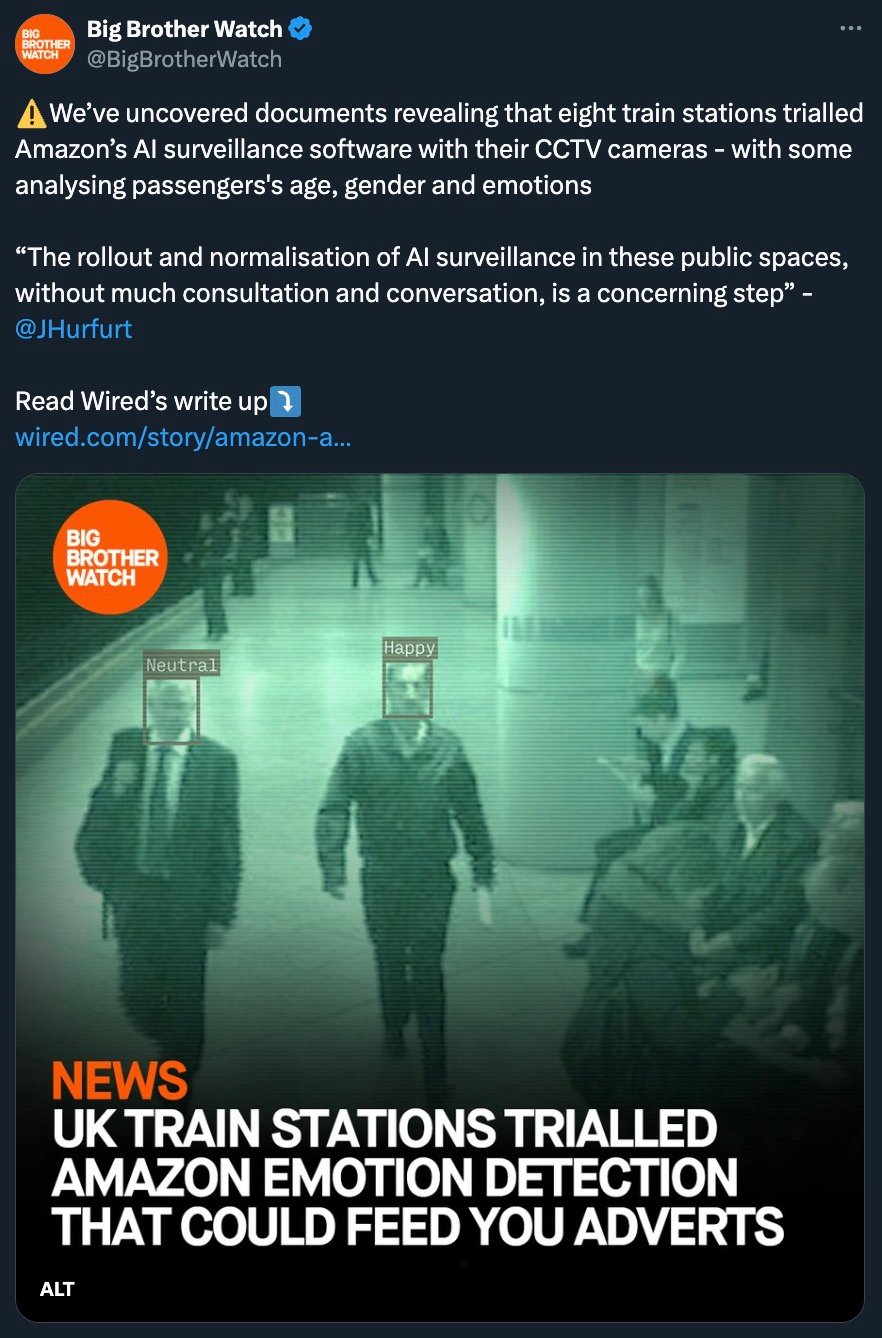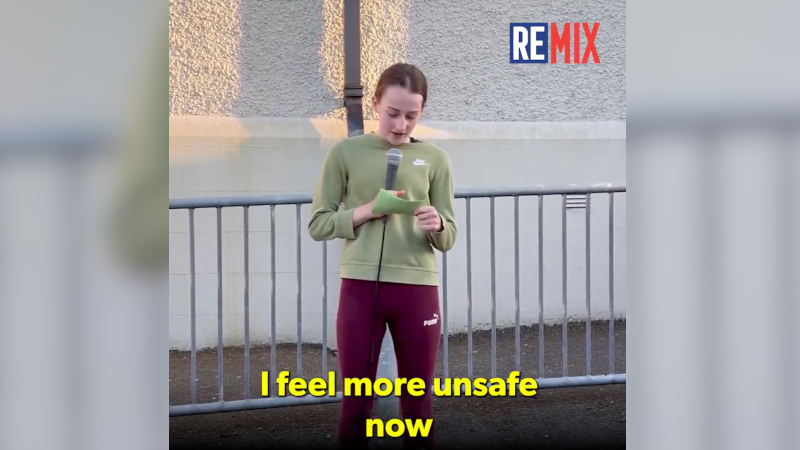In the UK, a series of AI trials involving thousands of train passengers who were unwittingly subjected to emotion-detecting software raises profound privacy concerns. The technology, developed by Amazon and employed at various major train stations including London’s Euston and Waterloo, as well as Manchester Piccadilly, used artificial intelligence to scan faces and assess emotional states along with age and gender. Documents obtained by the civil liberties group Big Brother Watch through a freedom of information request unveiled these practices, which might soon influence advertising strategies.
Over the last two years, these trials, managed by Network Rail, implemented “smart” CCTV technology and older cameras linked to cloud-based systems to monitor a range of activities. These included detecting trespassing on train tracks, managing crowd sizes on platforms, and identifying antisocial behaviors such as shouting or smoking. The trials even monitored potential bike theft and other safety-related incidents.
The data derived from these systems could be utilized to enhance advertising revenues by gauging passenger satisfaction through their emotional states, captured when individuals crossed virtual tripwires near ticket barriers. Despite the extensive use of these technologies, the efficacy and ethical implications of emotion recognition are hotly debated. Critics, including AI researchers, argue the technology is unreliable and have called for its prohibition, supported by warnings from the UK’s data regulator, the Information Commissioner’s Office, about the immaturity of emotion analysis technologies.
According to Wired, Gregory Butler, CEO of Purple Transform, has mentioned discontinuing the emotion detection capability during the trials and affirmed that no images were stored while the system was active. Meanwhile, Network Rail has maintained that its surveillance efforts are in line with legal standards and are crucial for maintaining safety across the rail network. Yet, documents suggest that the accuracy and application of emotion analysis in real settings remain unvalidated, as noted in several reports from the stations.

Privacy advocates are particularly alarmed by the opaque nature and the potential for overreach in the use of AI in public spaces. Jake Hurfurt from Big Brother Watch has expressed significant concerns about the normalization of such invasive surveillance without adequate public discourse or oversight.
Jake Hurfurt, Head of Research & Investigations at Big Brother Watch, said: “Network Rail had no right to deploy discredited emotion recognition technology against unwitting commuters at some of Britain’s biggest stations, and I have submitted a complaint to the Information Commissioner about this trial.
“It is alarming that as a public body it decided to roll out a large scale trial of Amazon-made AI surveillance in several stations with no public awareness, especially when Network Rail mixed safety tech in with pseudoscientific tools and suggested the data could be given to advertisers.’
“Technology can have a role to play in making the railways safer, but there needs to be a robust public debate about the necessity and proportionality of tools used.
“AI-powered surveillance could put all our privacy at risk, especially if misused, and Network Rail’s disregard of those concerns shows a contempt for our rights.”




